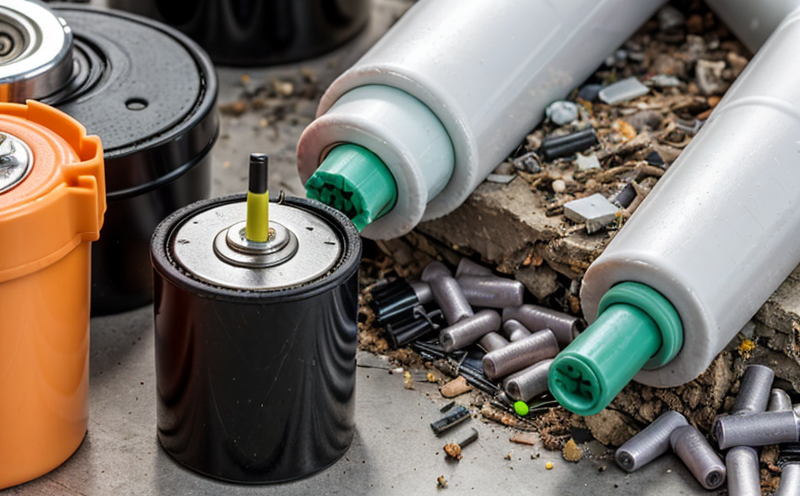ISO 12405-4 Recycling and End-of-Life Testing of HEV Battery Packs
The ISO 12405-4 standard provides a comprehensive framework for the recycling and end-of-life testing of hybrid electric vehicle (HEV) battery packs. This service ensures that batteries are tested thoroughly to determine their remaining capacity, performance degradation, safety concerns, and recyclability before final disposal or reuse.
The process begins with a detailed assessment of the battery pack's current state, including its chemical composition, structural integrity, and operational efficiency. This initial evaluation helps identify any issues that could compromise the safety or functionality during recycling.
Once the baseline is established, we proceed to conduct a series of tests as per ISO 12405-4 guidelines. These tests include:
- Cycling Tests: To measure the battery's remaining capacity and its ability to recharge.
- Thermal Stability Tests: Ensuring that the battery does not overheat during charging or use, which is critical for safety.
- Electrochemical Analysis: Analyzing the chemical composition of the electrolyte and electrodes to assess degradation levels.
- Structural Integrity Tests: Evaluating the physical condition of the battery casing and internal components.
The data collected from these tests is meticulously analyzed using advanced software tools, providing a detailed report on the battery's health and potential for reuse. Our team then provides recommendations based on this analysis to help clients make informed decisions regarding battery disposal or repurposing.
This service not only ensures compliance with international standards but also supports sustainable practices by maximizing the recyclability of HEV batteries, thereby reducing environmental impact. By adhering strictly to ISO 12405-4, we contribute significantly to the circular economy and promote responsible waste management in the automotive industry.
Our clients benefit from this service through enhanced safety standards, improved product performance, and reduced costs associated with disposal or repurposing of batteries. Additionally, compliance with ISO standards can open new market opportunities for companies committed to sustainability.
Why It Matters
The recycling and end-of-life testing of HEV battery packs are crucial for several reasons:
- Safety: Ensuring that batteries do not pose a risk during the recycling process.
- Environmental Impact: Minimizing waste and promoting sustainable practices in battery disposal.
- Economic Benefits: Maximizing resource recovery by identifying viable repurposing or recycling opportunities.
By adhering to ISO 12405-4, we help our clients navigate the complex regulatory landscape and ensure that their operations are both safe and environmentally friendly. This service also supports broader sustainability goals within the automotive sector.
Quality and Reliability Assurance
Our commitment to quality and reliability is reflected in our adherence to ISO standards, which ensures that all testing procedures are conducted with precision and accuracy. We use state-of-the-art equipment and follow strict protocols to ensure consistent results.
The service includes a detailed audit trail for each test conducted, ensuring transparency and traceability throughout the entire process. This not only builds trust with our clients but also provides peace of mind regarding the reliability of the data generated.
We work closely with quality managers and compliance officers to ensure that all testing aligns with their specific requirements and objectives. Our experienced team of engineers and technicians is dedicated to providing top-notch service, ensuring that every aspect of the testing process meets or exceeds industry standards.
Customer Impact and Satisfaction
- Improved Safety: By identifying potential risks early in the process, we help prevent accidents during recycling.
- Enhanced Reputation: Compliance with international standards enhances a company's reputation for sustainability and responsibility.
- Cost Savings: Maximizing the value of batteries through repurposing or efficient disposal reduces overall costs.





